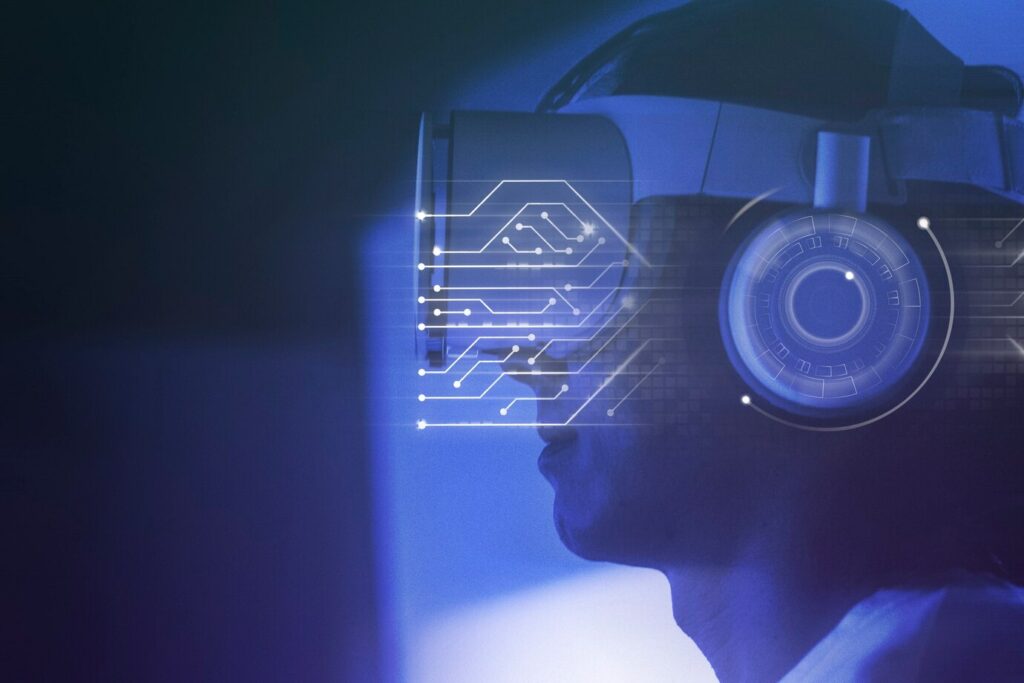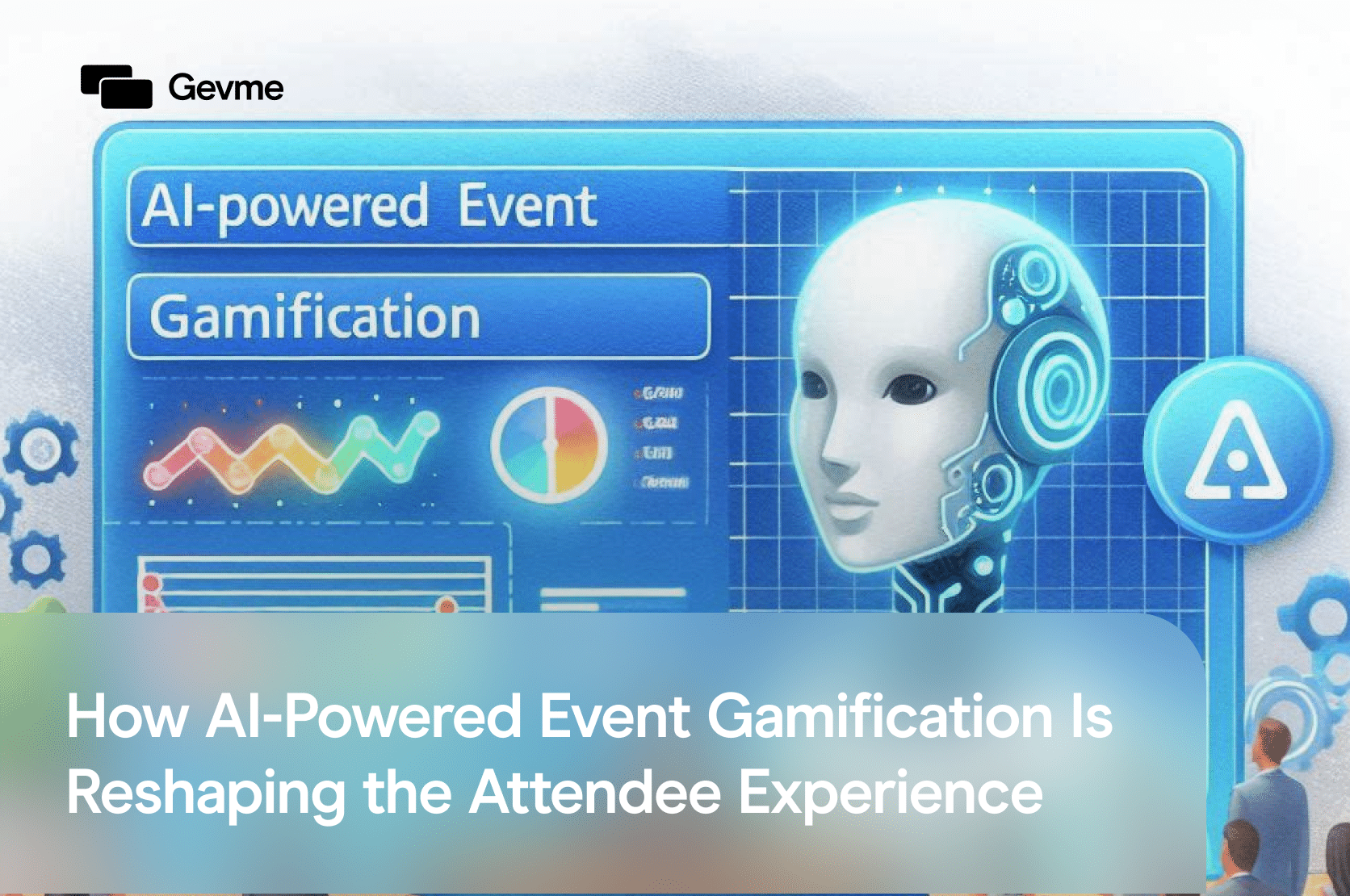AI-Powered Event Gamification is changing how attendees experience events. It uses advanced technologies to create interactive and engaging environments. In this article, we will explore why AI-Powered Event Gamification is important in shaping attendee participation and satisfaction. We’ll also look at real-life examples and effective strategies for using AI-powered solutions in your events.
The Power of AI-Powered Event Gamification
Imagine a world where event participation goes beyond just watching. Instead, attendees are actively involved and fully immersed in every part of the experience. This is exactly what AI-Powered Event Gamification can do. With its ability to personalize interactions and adapt in real-time, AI technology is transforming how attendees interact with events.
What You’ll Discover
In this article, we will:
- Understand the key benefits of using AI-Powered technology in event gamification
- Learn effective strategies for implementing AI-Powered Event Gamification
- Explore case studies of companies that have successfully used AI-Powered gamification to increase attendee engagement
- Discuss future trends and developments in AI-Powered solutions for events
By the end of this article, you’ll have a clear understanding of how AI-Powered Event Gamification can enhance your events and create memorable experiences for all participants.
Understanding the Benefits of AI-Powered Event Gamification
Gamification in events involves integrating game mechanics and design elements into non-game settings, such as conferences and trade shows, to enhance engagement and foster a memorable attendee experience. AI-Powered event gamification utilizes advanced technologies to take this concept to the next level, offering benefits that traditional approaches cannot match.
The key benefits of AI-Powered technology in event gamification include:
- Enhanced Personalization: By leveraging AI algorithms, event organizers can tailor gamified experiences to each attendee’s preferences, behavior, and interests. This personalized approach fosters a deeper connection with the audience and increases overall engagement.
- Real-Time Adaptability: AI empowers event gamification platforms to dynamically adjust challenges, rewards, and activities based on real-time data and participant interactions. This adaptability ensures that the experience remains fresh and relevant throughout the event, catering to the evolving needs of attendees.
The integration of AI-Powered solutions elevates event gamification from a static, one-size-fits-all approach to a dynamic and personalized experience that captivates attendees on a deeper level.

How AI is Changing Attendee Participation in Events
AI technology is changing the way attendees participate in events by creating interactive and immersive experiences through gamification. By using AI-powered gamification features, event organizers can:
- Provide Personalized Recommendations: AI algorithms analyze attendee preferences, behavior, and past interactions to offer personalized suggestions for sessions, exhibitors, networking opportunities, and more. This ensures that attendees get relevant content and are more involved in the event.
- Adapt in Real-Time: AI-powered gamification platforms can adjust and respond immediately to attendee actions and preferences. For example, if an attendee is not actively participating or seems uninterested, the system can offer tailored rewards or suggest relevant activities to re-engage them.
- Create Exciting Challenges: AI technology allows for the creation of dynamic challenges and tasks for attendees to complete during the event. These challenges can be tailored based on attendee interests, motivating them to explore different parts of the event and interact with other participants.
- Make Sessions Interactive: With AI-powered features like live Q&A sessions, polls, and instant feedback during presentations, attendees can actively participate and influence the content being shared. This not only improves their experience but also provides valuable insights for speakers and organizers.
- Promote Social Interaction: AI-powered gamification platforms can include social media elements to encourage attendees to share their experiences, accomplishments, and join discussions online. This expands the reach of the event beyond its physical location and fosters a sense of community among attendees.
By using AI technology effectively in events, organizers can create highly engaging experiences that keep attendees interested throughout the entire event.
Strategies to Implement Successful AI-Powered Gamification in Your Events
To encourage active involvement from attendees using AI-Powered gamification, organizers can utilize various strategies. These strategies aim to increase engagement and create a sense of excitement among participants. Here are three effective strategies to implement successful AI-Powered gamification in your events:
- Points and Rewards System: Incentivize attendees with meaningful rewards and recognition for their participation. By earning points through various activities such as attending sessions, visiting booths, or networking, attendees can redeem them for rewards. This strategy enhances engagement by providing attendees with a tangible benefit for actively participating in the event.
- Leaderboards and Competitions: Foster a sense of challenge and excitement among participants through friendly contests. A leaderboard displays the rankings of participants based on their accumulated points. This gamified element creates a competitive environment and motivates attendees to strive for higher rankings. By incorporating competitions into your event, you can drive increased attendee participation and create a buzz around the event.
- Badges and Achievements Unlocking: Motivate attendees to explore different aspects of the event by offering exclusive badges and achievements for completing specific tasks or milestones. These badges serve as virtual representations of accomplishments and provide a sense of accomplishment for attendees. By unlocking badges, attendees are encouraged to engage further with the event, explore different sessions or activities, and strive to complete all available achievements.
By implementing these strategies, organizers can effectively leverage AI-Powered gamification to enhance attendee participation and create a more engaging event experience. These techniques tap into attendees’ intrinsic motivation by providing rewards, fostering competition, and offering a sense of achievement. The result is an immersive and interactive event that keeps participants engaged throughout the entire duration.
Remember that each strategy can be tailored to fit your specific event objectives and audience preferences. Experimenting with different combinations of these strategies can help you find the right balance that resonates with your attendees and maximizes their engagement.
Case Studies: Real-Life Examples of Successful AI-Powered Event Gamification
Examination of how companies have effectively utilized AI-Powered gamification to drive attendee engagement and achieve their event goals, with concrete examples:
Case Study 1: Starbucks – Leveraging Personalized Recommendations to Encourage Session Attendance
Starbucks, a leading global coffeehouse chain, implemented AI-powered gamification through its AI program, DeepBrew, to enhance customer experience and increase engagement with their rewards program. By leveraging personalized recommendations, they successfully motivated customers to explore a wider range of products and participate more actively in the rewards system.
Using AI algorithms, DeepBrew analyzed customer profiles, preferences, and past interactions to provide personalized menu recommendations. Customers received tailored suggestions based on their interests and purchase history, ensuring they discovered relevant products aligned with their tastes and needs.
The implementation of DeepBrew had several positive outcomes:
- Increased Engagement: By offering relevant product suggestions, Starbucks saw a significant rise in customer engagement. Customers were more likely to try new products that matched their preferences, resulting in higher levels of satisfaction and loyalty.
- Improved Rewards Participation: The personalized recommendations also facilitated participation in the rewards program by setting personalized challenges for customers. This gamified approach encouraged customers to complete specific tasks, earning bonus stars and other rewards, which fostered a sense of accomplishment and enjoyment.
- Enhanced Overall Satisfaction: Customers appreciated the personalized approach as it saved them time in making decisions. They felt that Starbucks understood their preferences and delivered tailored experiences, leading to higher overall satisfaction rates.
Case Study 2: Ford at the 2020 Essence Festival – Using Virtual Reality (VR) Experiences for Immersive Booth Interactions
Ford Motor Company, a leading automotive manufacturer, integrated AI-powered gamification through virtual reality (VR) experiences at their booth during the 2020 Essence Festival. By immersing attendees in interactive and engaging virtual environments, Ford successfully attracted and retained visitors’ attention while providing a unique and memorable experience.
At the Essence Festival, Ford utilized VR technology to create captivating virtual experiences that showcased their vehicles. Attendees could explore virtual showrooms, interact with 3D models of the cars, and even simulate real-life driving scenarios relevant to the exhibited vehicles.
The implementation of AI-powered VR experiences had several positive outcomes:
- Increased Booth Traffic: The immersive VR experiences acted as a magnet for attendees, drawing them to the Ford booth. The novelty and interactive nature of the virtual environments generated curiosity and increased footfall, resulting in higher exposure for Ford’s vehicles.
- Improved Product Understanding: By allowing attendees to interact with virtual product demonstrations, Ford enabled a better understanding of their offerings. Attendees could visualize the unique features and benefits of the vehicles in a hands-on manner, leading to increased interest and potential sales.
- Enhanced Brand Engagement: The use of AI-powered VR experiences created a memorable brand experience for attendees. The immersive nature of the technology left a lasting impression and improved brand recall, making it more likely that attendees would engage with Ford’s brand beyond the event.
These case studies demonstrate how AI-powered gamification can be effectively implemented to drive attendee engagement and achieve event goals. By personalizing recommendations and leveraging immersive technologies like VR, event organizers can create unique experiences that captivate attendees and leave a lasting impact.

The Future Landscape of AI-Powered Event Gamification
As AI technology continues to advance at a rapid pace, the future of AI-powered event gamification holds exciting possibilities. Here are some trends and potential advancements to watch out for:
- Hyper-personalization: AI-powered event gamification will become even more personalized, tailoring the attendee experience based on individual preferences and behavior. With advanced data analytics and machine learning algorithms, organizers can deliver targeted recommendations, content, and challenges to maximize engagement.
- Augmented Reality (AR): AR has already made waves in the gaming industry, and its integration into event gamification is on the horizon. By overlaying digital elements onto the real world, AR can create immersive experiences that captivate attendees. For example, scavenger hunts or interactive challenges could be enhanced with AR technology, making them more engaging and memorable.
- Predictive Analytics: AI-powered solutions will utilize predictive analytics to anticipate attendee needs and interests. By analyzing past event data and attendee behavior patterns, organizers can make informed decisions about content, sessions, and activities that will resonate with attendees. This proactive approach ensures a more tailored and satisfying experience for participants.
- Social Integration: Social media platforms will continue to play a crucial role in event gamification. Organizers will leverage AI-powered tools to encourage attendees to share their achievements, engage in friendly competition, and promote the event on social media. This not only increases engagement but also extends the reach of the event beyond its physical boundaries.
- Virtual Reality (VR): While VR has already been explored in event gamification, its potential is far from fully realized. In the future, VR experiences could become more immersive and interactive, allowing attendees to explore virtual environments, interact with sponsors or exhibitors in a lifelike manner, and participate in collaborative activities with other attendees from anywhere in the world.
- Seamless Integration with Event Tech: AI-powered event gamification will seamlessly integrate with other event technologies, such as registration systems, event apps, and networking platforms. This integration will enable organizers to gather more comprehensive data about attendee preferences and behavior, leading to more effective gamification strategies and enhanced overall event experiences.
As the events industry continues to evolve, AI-powered event gamification will play an increasingly significant role in reshaping the attendee experience. By leveraging the power of AI technology, organizers can create highly engaging, personalized, and interactive experiences that leave a lasting impact on attendees. The future of AI-powered event gamification is full of possibilities, and embracing these trends will undoubtedly elevate the success of future events.
Conclusion
The use of AI-Powered gamification in events has a significant impact. By incorporating AI technology into event experiences, organizers can increase attendee participation and satisfaction. AI-Powered Event Gamification takes events to a whole new level, making them more interactive, exciting, and memorable.
Gevme, a leading event management platform, stands out in this area by offering advanced AI-Powered gamification features. With Gevme, organizers can:
- Implement points and rewards systems
- Set up leaderboards and competitions
- Unlock badges and achievements
- Conduct quizzes and polls
- Create challenges and missions
- Facilitate interactive sessions
- Encourage social sharing
- Provide virtual exhibits and booths
These features enable organizers to create immersive and engaging experiences for attendees.
To fully benefit from AI-Powered Event Gamification, organizers need to embrace this technology and explore its potential in creating more impactful events. By using Gevme’s capabilities, they can enhance their events and provide personalized experiences that foster a sense of community.
So why wait? Take action now and try out AI-Powered Event Gamification strategies in your next event. Use the power of AI to revolutionize attendee participation and satisfaction.
Remember, the future of event gamification is here. Don’t miss out on the opportunity to reshape the attendee experience with AI-Powered solutions. Start exploring Gevme’s offerings today.








